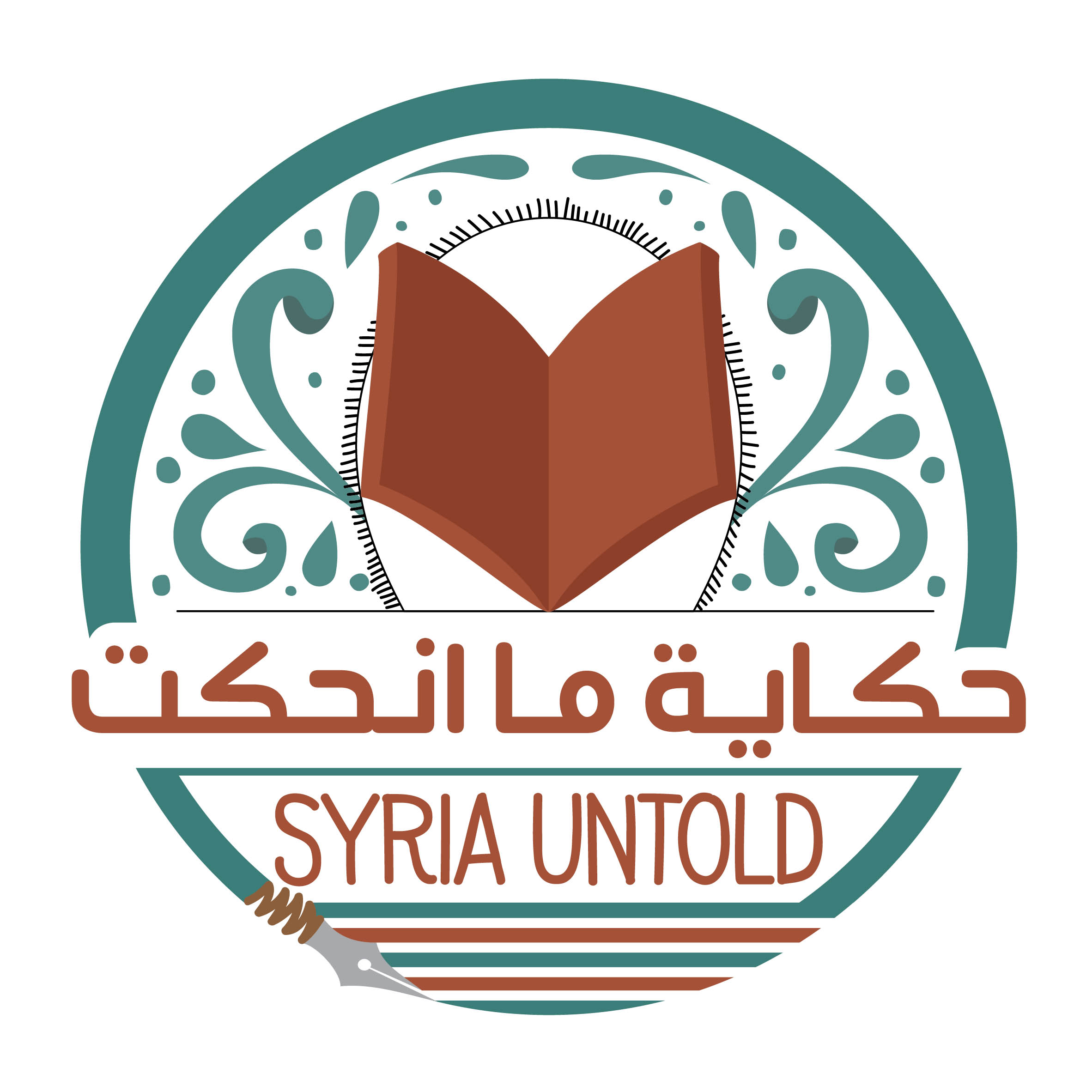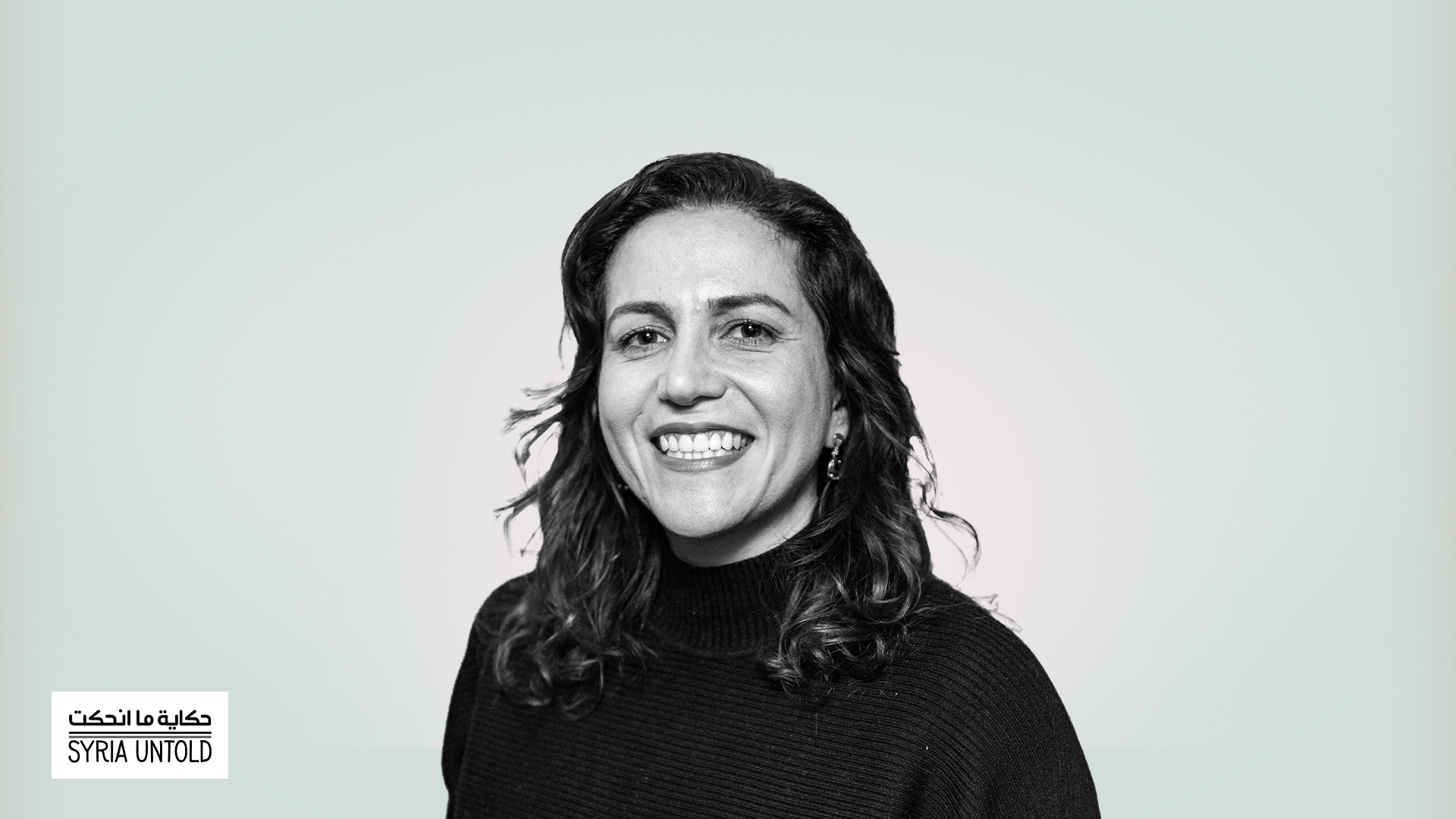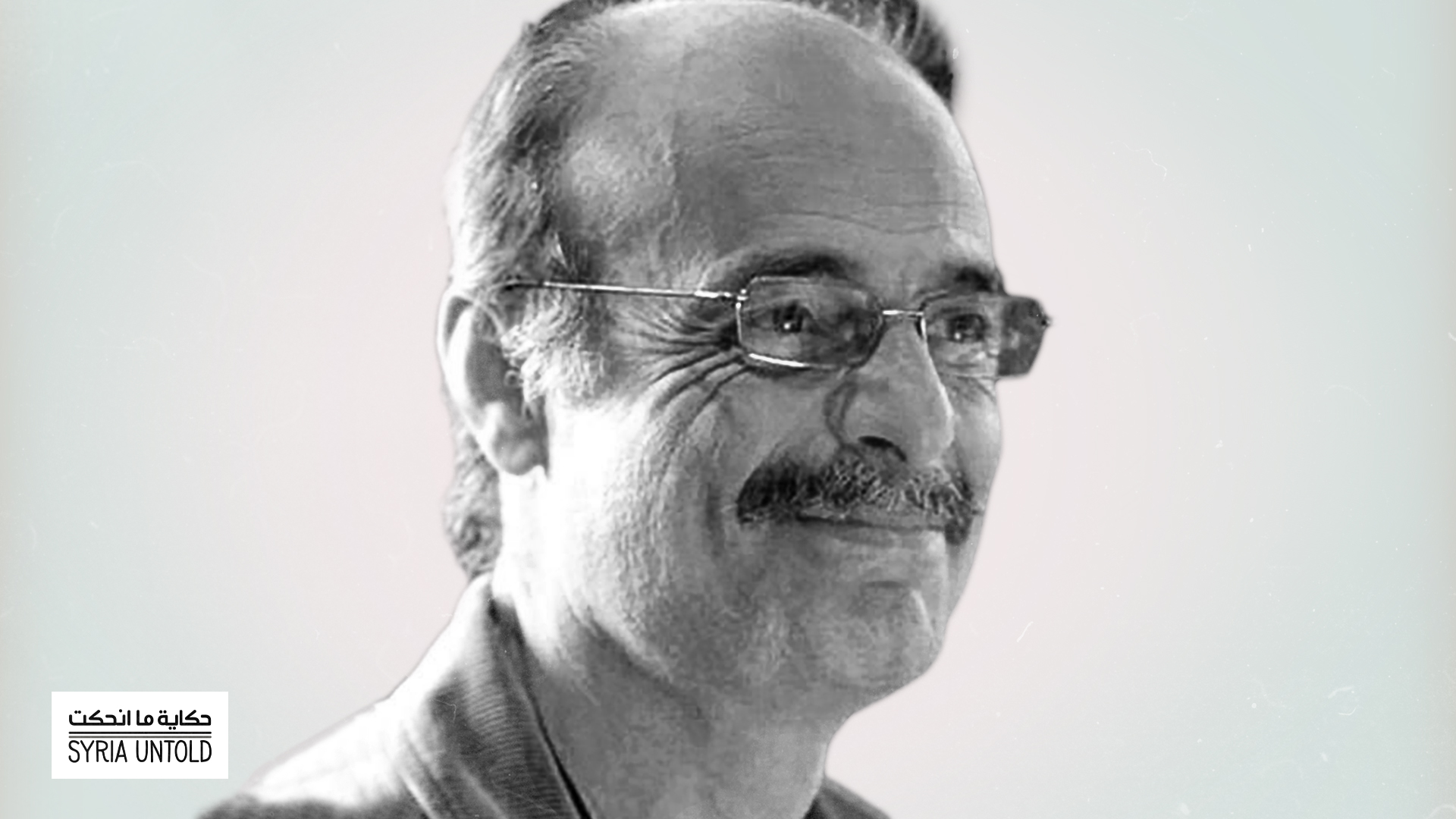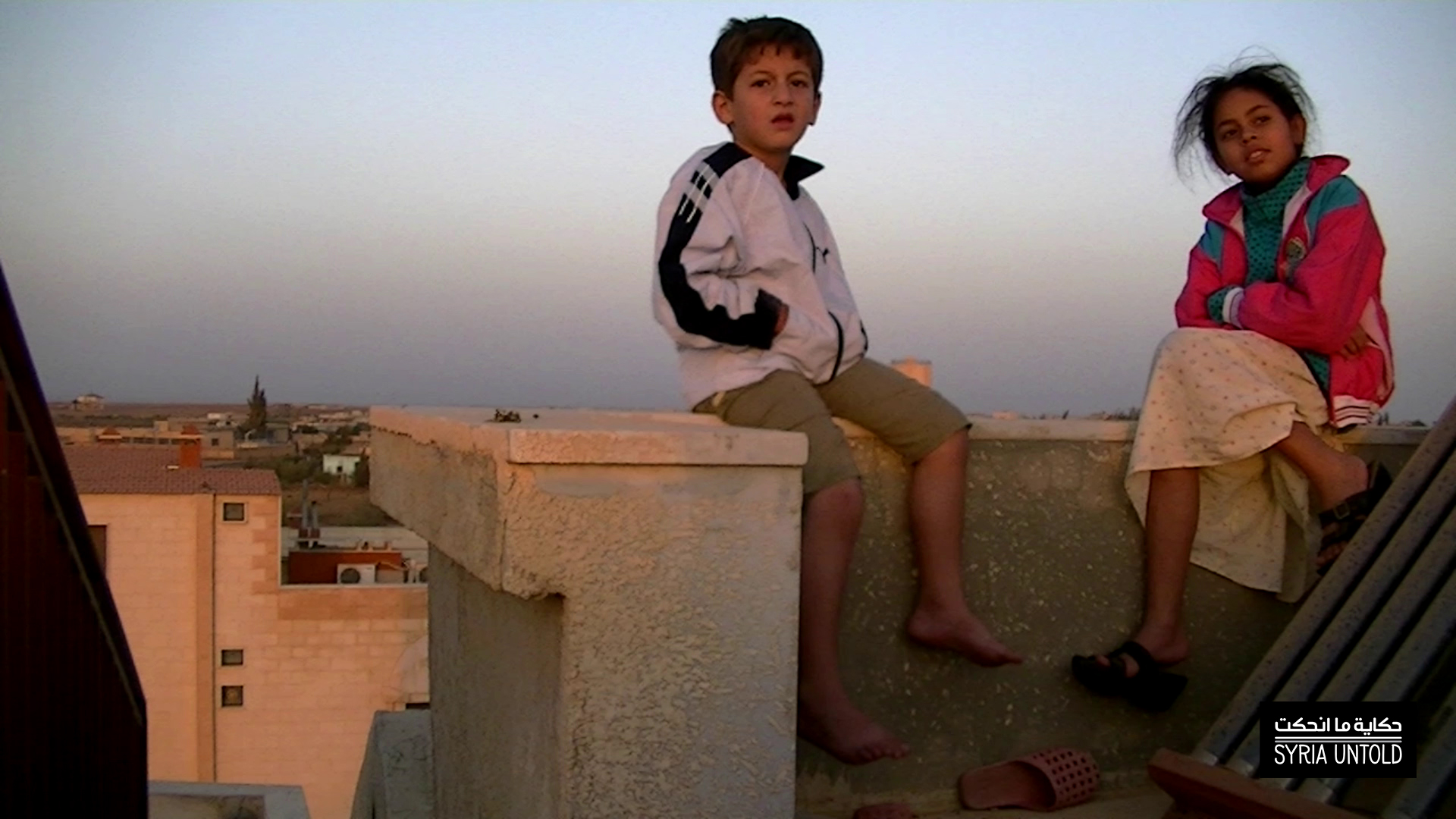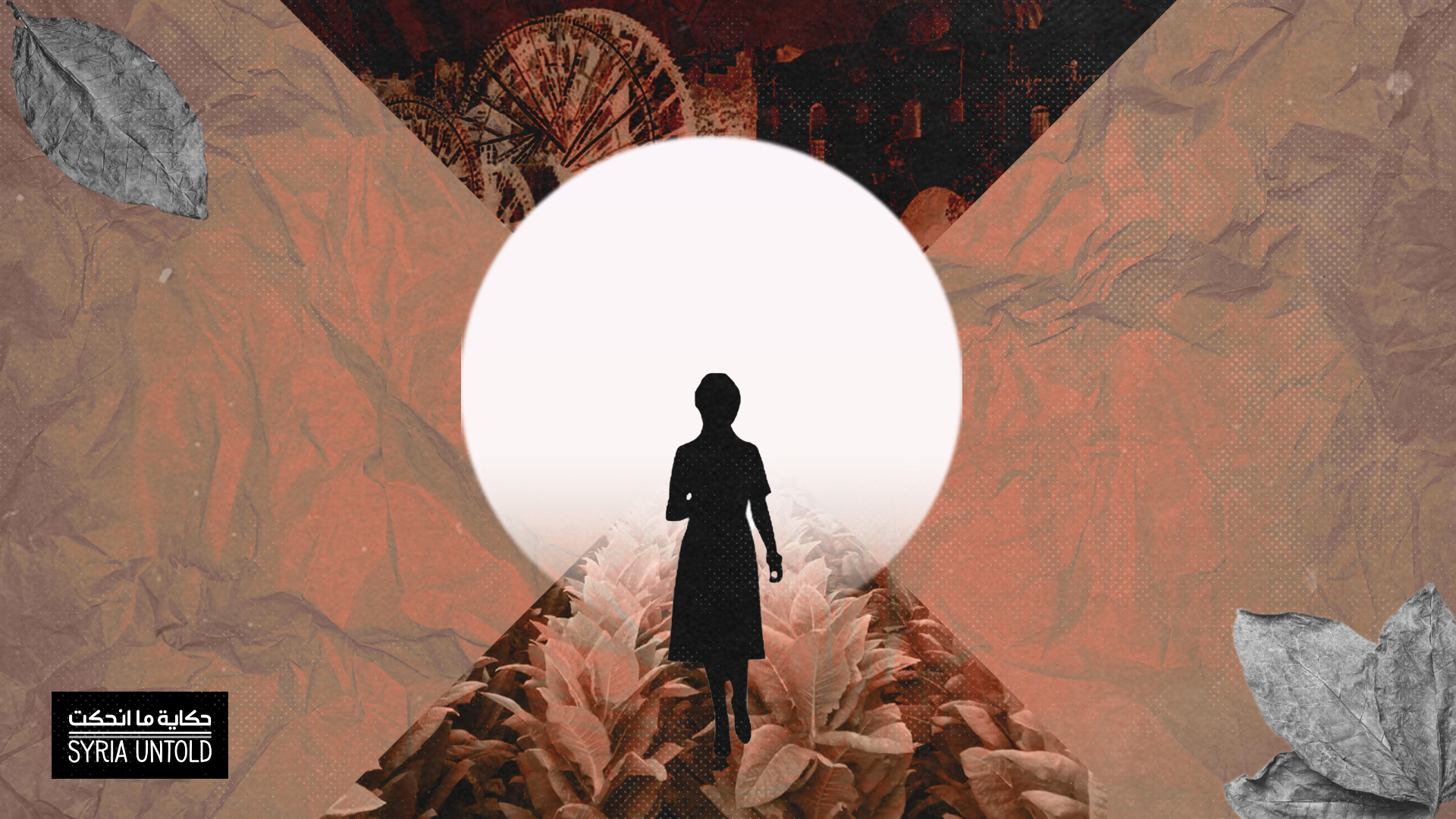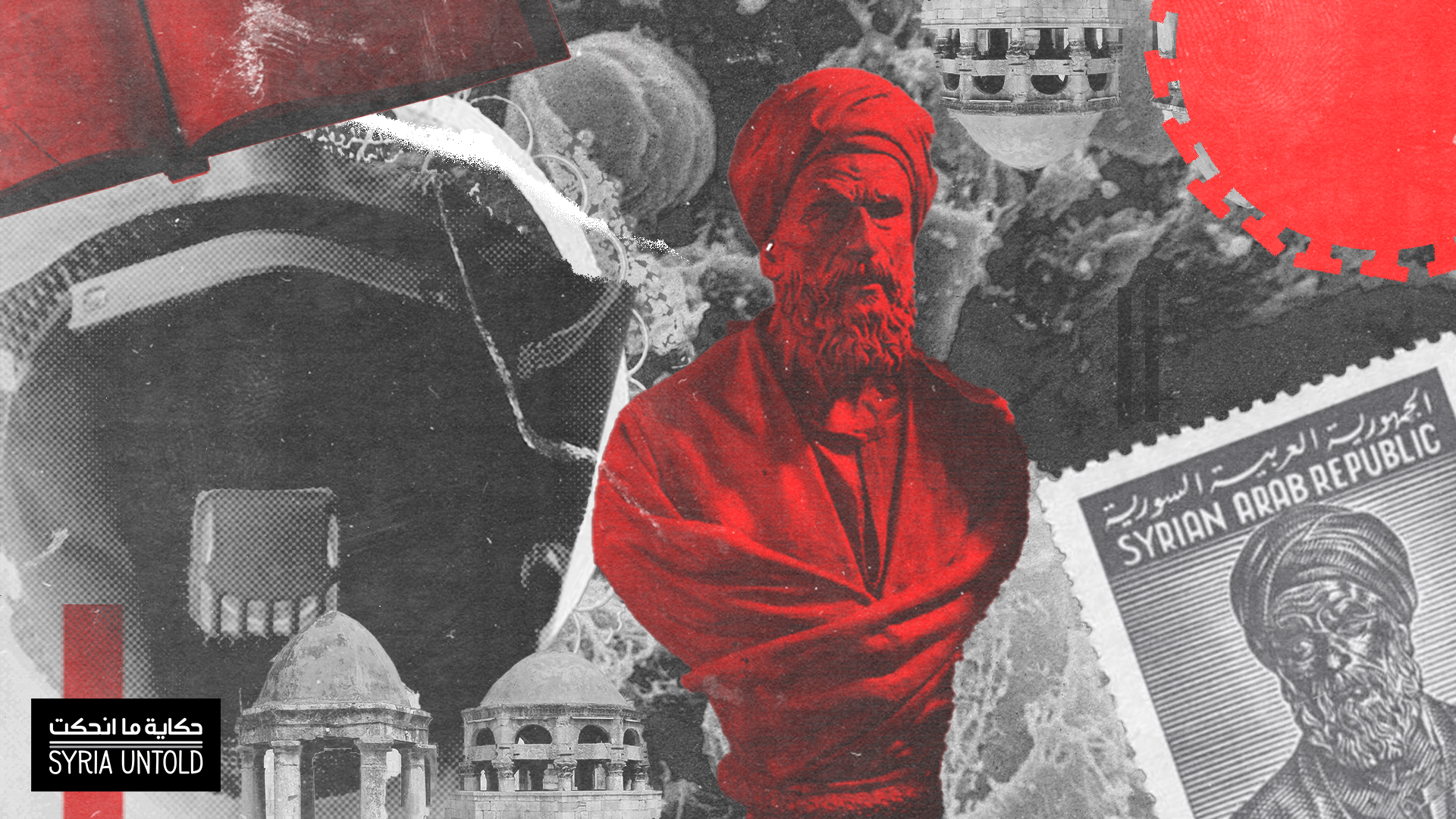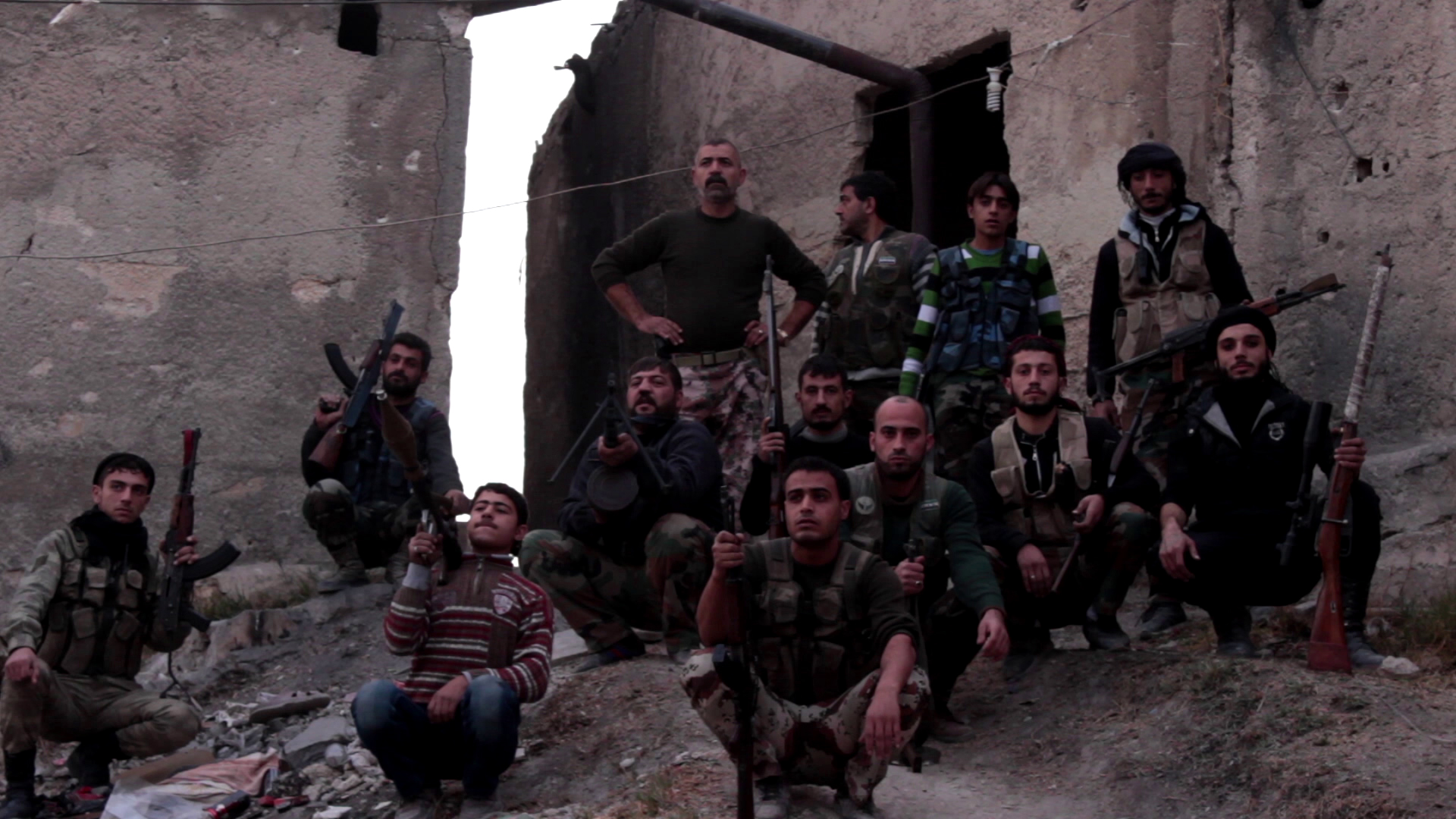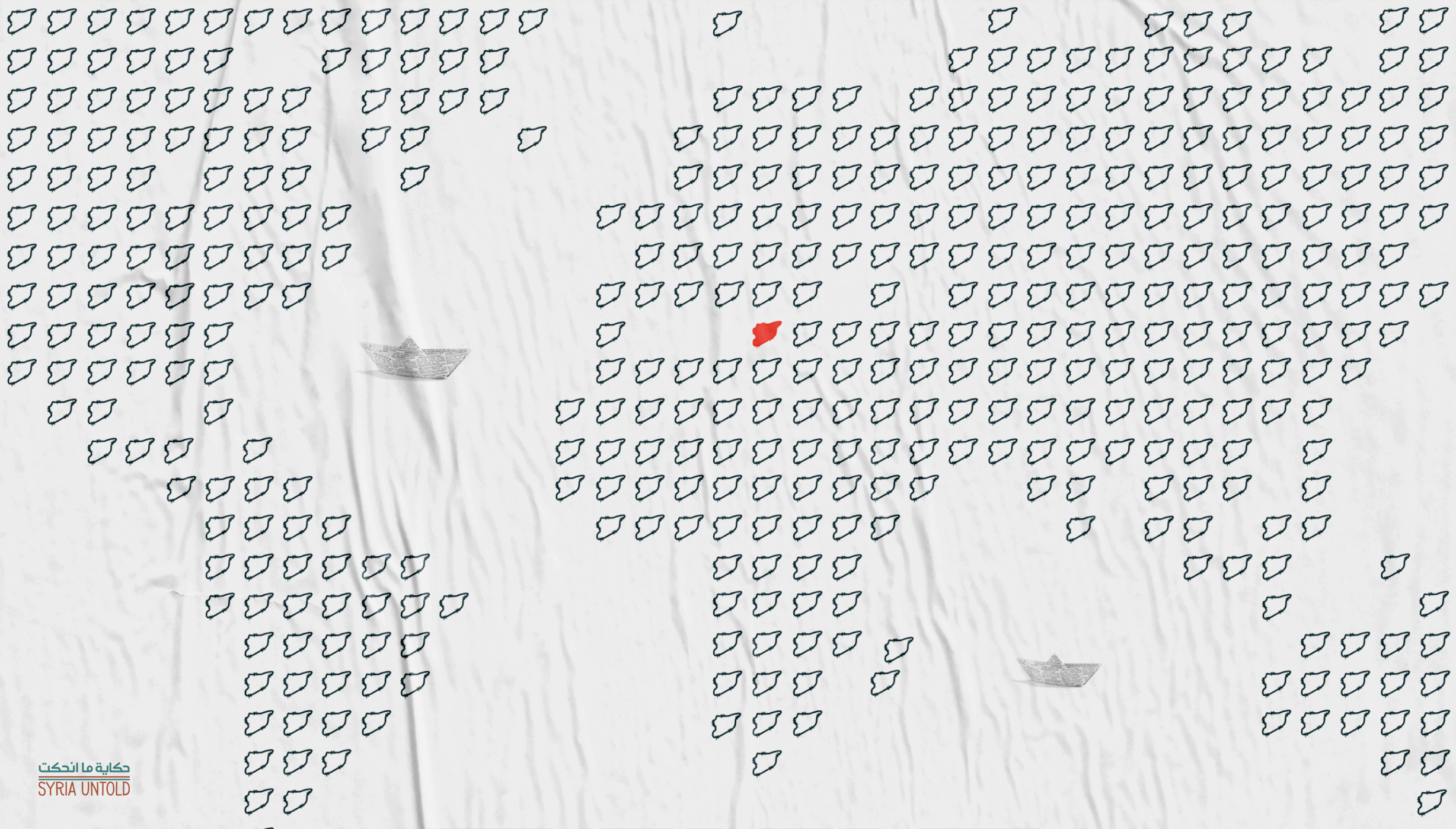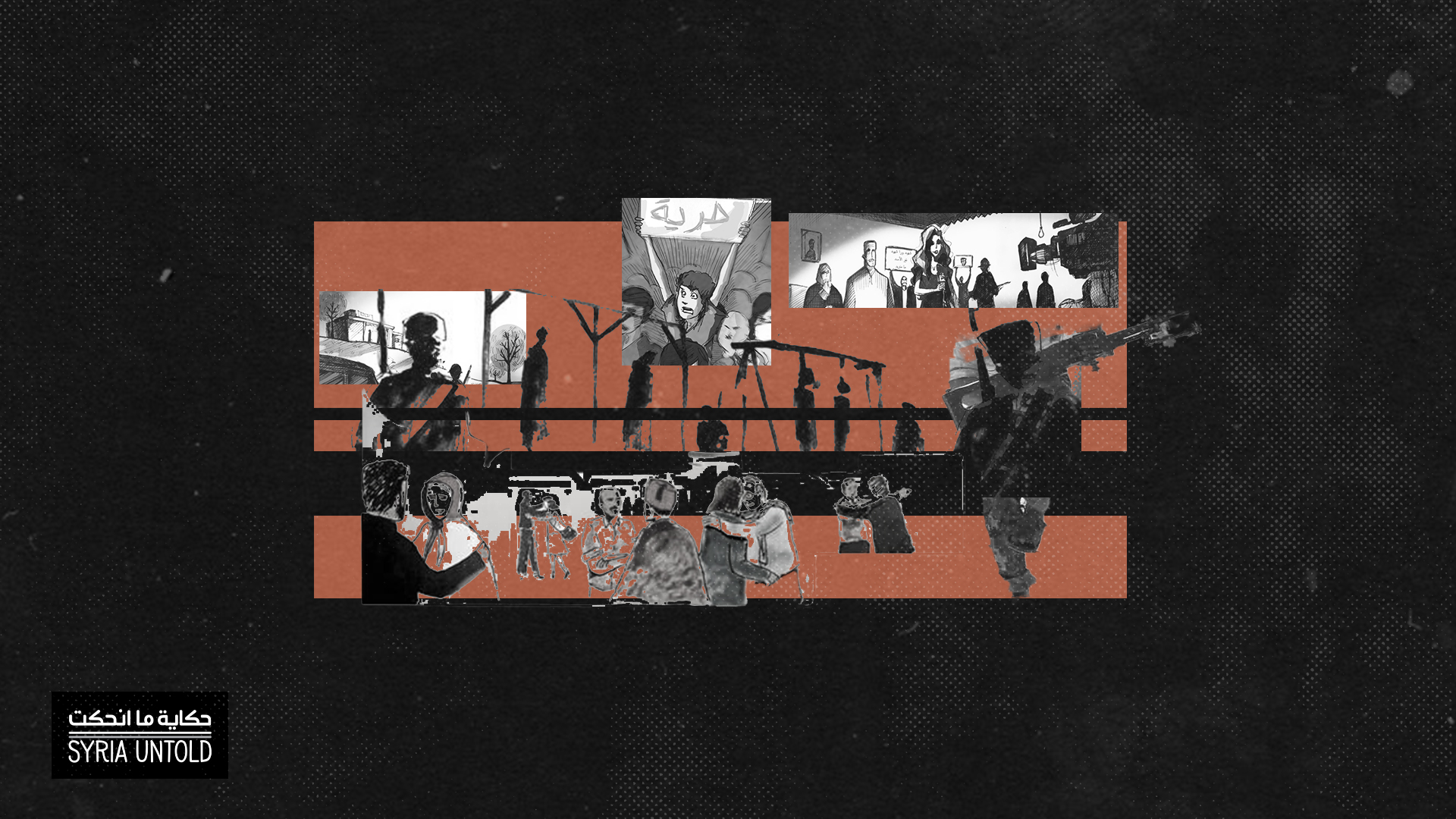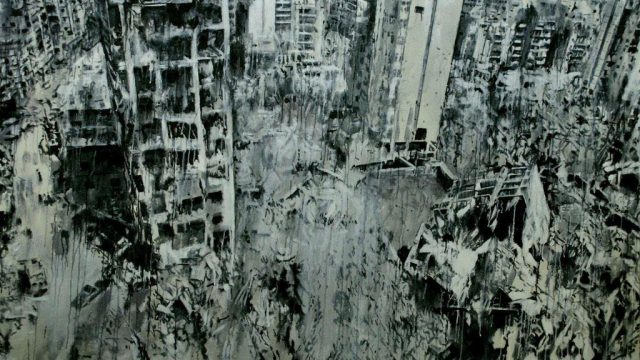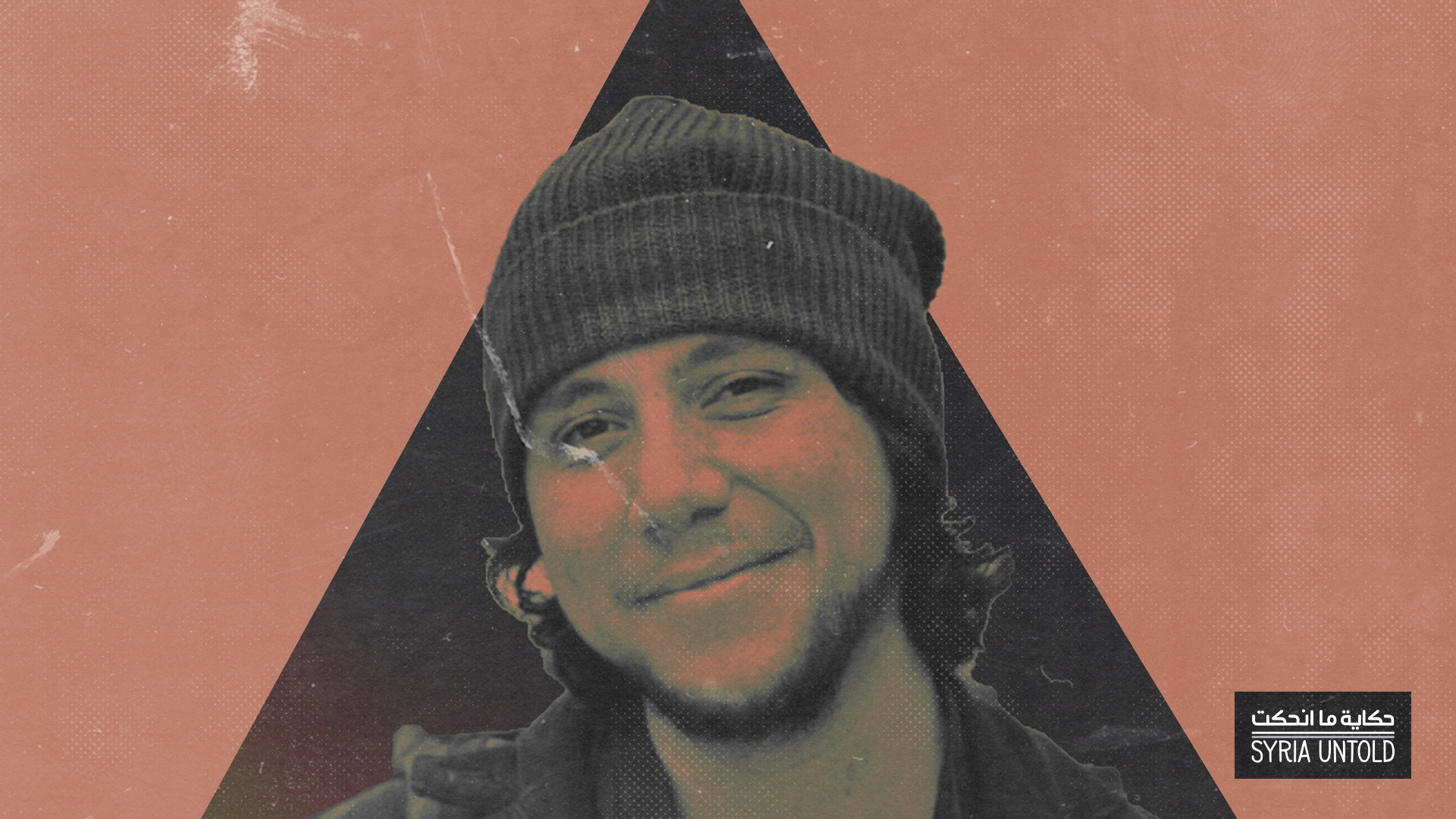Read this interview in its original Arabic here.
Over the past decade, Syrian film director Orwa al-Mokdad’s work has led him to Daraa, Aleppo, Damascus, Beirut and finally Berlin, where he lives now.
It hasn’t been an easy journey. Filming “wasn’t simple to do in the middle of battles and heavy bombardment,” Orwa tells SyriaUntold.
Nevertheless, Orwa has a number of films to his name, including 300 Miles, which won the award for best first feature at the Doclisboa festival in Portugal. He has also participated in the Locarno Film Festival in Switzerland. His other films include The Resurrection, Under the Aleppo Sky, We Were Alright and Music Street. He is currently working on his second feature-length documentary, A Story Not Told in Pictures, set in Idlib.
SyriaUntold spoke with Orwa in recent weeks about his own filmmaking, as well as Syrian cinema more broadly and his and other artists’ roles amid revolution.
This interview has been edited for length and clarity.
Soudade Kaadan: 'Magic realism sneaks into all of my films'
19 July 2021
Within the margins, and breaking free: Syrian cinema
23 January 2021
Can you remember the moment you first fell in love with cinema?
I think it started when I saw the film Interview With the Vampire. I remember being 12 years old, and it was the first time I realized that there was a difference between commercial films and cinematic films. My father loved watching films, and we had many VCRs in our house. We watched dozens of Egyptian films and action films by Jean-Claude Van Damme, Arnold Schwarzenegger and Jackie Chan.
We were also addicted to horror movies. At the time, video rental shops were popping up across East Ghouta, and I remember one in particular that opened in the al-Tabbaleh neighborhood of Ain Tarma. This neighborhood was known for drug trafficking and prostitution, and I used to be scared to pass through that area. But that shop started bringing in films that were different from the ones we were used to, the ones that we used to watch dozens of times. I was looking around in that store for a movie to watch one weekend when I found Interview With the Vampire.
I thought this film would be like all the other horror films we’d seen about vampires. But it was completely different. There were no cheap gore scenes, and the film itself wasn’t scary. It was magical. I still remember this one great scene where Brad Pitt, the vampire, is able to see the sun in the movie theater lobby during a film, hundreds of years after he stopped being able to see the sun in real life. I wasn’t used to those kinds of struggles faced by the protagonist—those deep questions that the characters ask themselves, those feelings of listlessness when the film ends and you think about what you want to say. Every time I watched a film like this, I felt that I had entered a magical world. I felt weightless and a little drunk. I fell in love with cinema.
Did your surroundings during childhood give you certain “raw materials” that you think about when you direct a film?
Two elements impacted my imagination during childhood and adolescence. The first was simplicity. I spent part of my childhood in my village, Ghassam, in southern Syria. The simple nature of the area, the open sky, fields and stone houses created a kind of ability to meditate and immerse myself in the local stories, in which fantasy and reality are always intertwined. Laying on the ground and looking up at the Milky Way, at the stars scattered like freckles across the sky, you can imagine all sorts of stories and images about life and the universe.
Everyone with a fertile imagination has the ability to direct films.
I always pictured the stories about jinn, ghosts and the Zaydi horsemen that my grandmother used to tell me on cold winter evenings. Her stories were like films that I directed in my head, rearranging the scenes and the tragic fates of the heroes. My grandmother and mother both had a skill for storytelling. I believe that the women of our village all had this skill, to recreate stories to be more interesting and stimulating to our imagination. Everyone with a fertile imagination has the ability to direct films.
Then, when my family moved to the outskirts of Damascus, the chaos there was a rich visual stimulus. In the informal slums, you could see the cement buildings overlap with one another. The open windows provided rich details about people’s lives and their contradictions. Human faces, the rhythms of time, history and modernity interwoven, the country’s bleak form of socialism...all of these made for intense visual stimuli. But these alone are not enough to create a cinematic vision. Cinema requires the ability to navigate the free imagination, the ability to think critically, to understand society and the topics we wish to address.
How do you choose the topics of your films? How do you generate these ideas and decide which ones are suitable for your next cinematic project?
I’m not sure how I actually choose to make my films. I always feel that I want to create a film that is different from the ones I’ve previously made. I want to make a romance, a love story, perhaps a film full of challenges that nevertheless reaches a happy ending. I remember that era of romantic films that evoked a deep sense of pleasure, desire and hope. I have made bleaker films, ones about death, revolution and loss. Do we choose these topics for ourselves? Everything in this part of the world has been forced upon us, and I feel that the films I made were forced upon me. We didn’t have the luxury of choosing, preparing, then producing. The revolution broke out, so I picked up a camera and found myself making documentary films about it.
Human faces, the rhythms of time, history and modernity interwoven, the country’s bleak form of socialism...all of these made for intense visual stimuli.
Now I’m trying to distance myself from what happened in Syria and think about it more deeply, to find my own cinematic language if the circumstances allow. Cinematic production is complex and very difficult. I want to be able to tell stories with images, without there being burdens on those images.
The traitor
09 August 2021
Returning to Abu Alaa al-Maari in our year of plague
13 May 2021
As Syrians, can we say there is such a thing as Syrian cinema, meaning a cinema that has clearly defined characteristics that distinguish it from others? Is it essential for Syrian cinema, or any other country’s cinema, to have a “national identity”?
National cinema, as we call it, does not necessarily mean that it deals with the revolutionary or political aspects of the country it comes from, but rather that it has the character of that country, in terms of thinking, processing ideas and even image production. In this sense, for example, we can say that there is Italian cinema and Greek cinema. And now there is Hollywood, with its commercial and (international) artistic character, which is trying to usurp modes of expression and the cinematic format in a way that is palatable for American culture.
For example, in Andrei Tarkovsky’s films, you can see that his filmmaking is distinctly Russian and that it reflects the concerns and thinking of the society that he is trying to portray. And in the films of Theo Angelopoulos, you can see and understand the peculiarity of the ideas he grapples with, which stem from Greek society.
As for your question about Syrian society, I don’t have an exact answer. There are films that at one point reflected the peculiarity of Syrian society and had a special narration style. But can we say that there was a Syrian cinema? In my opinion, the Syrian regime prevented the development of Syrian filmmaking through repression, intimidation and controlling all aspects of intellectual life. There was also the National Film Organization, which dominated the production of Syrian films.
There are some people who divide the history of Syrian filmmaking into two eras: pre-revolution and post-revolution. Do you think it is possible to make this division?
I agree with this division. The revolution created a radical change in our modes of expression—not just at the cinematic level, but on all intellectual, political and cultural levels as well. The films that were produced before the revolution were subject to very harsh conditions. Some directors chose to work within these conditions, while others chose to circumvent them. And some directors chose to leave these conditions behind completely, in search of other places in the world where they could make their films.
Everything in this part of the world has been forced upon us, and I feel that the films I made were forced upon me.
After the revolution, a new reality emerged and the standards of film production changed. We now had the ability to produce films that relied on mobile phone videos and low-resolution cameras. Films no longer needed much preparation to comply with censorship and terms of funding. Sometimes the photographer also became the director and the editor. Moreover, the event itself, that is, the revolution, differed radically from the previous reality. There was no longer a specified ceiling or censorship for film production, as all topics—or at least political ones—became the subjects of discussion, debate and filmmaking.
After the revolution, a new generation of Syrian filmmakers emerged, producing films that could not have been produced before. What distinguishes this new generation from the pre-revolution one?
There aren’t any distinguishing features in the literal sense, but I do think that there is a difference between the two generations in terms of freedom and engagement with reality. You also see many directors nowadays who did not study in film schools. In addition, you saw more fiction films before the revolution than now.
The complex conditions of the war have imposed film production conditions that differ from before the revolution. International production companies have become more interested in Syria, pouring lots of funding into producing documentaries. Many of these films have reached international festivals. Of course, working with international companies has brought Syrian cinematic production closer to the festivals, giving these films a certain touch to suit market conditions.
That said, there aren’t yet clear features of the post-revolution cinema—we need more time to watch and wait for the second wave of films that will address different layers of the Syrian revolution and its repercussions.
After 2011, the door opened for criticism of the Assad regime. But there is still a sort of timidness in interacting critically with one another, with our films, novels and books. And if we do engage in such criticism, the critic is often questioned about their “revolutionary” ideals. How do you view this absence of critical engagement with one another?
Distorting Syria
23 July 2020
Yes, the state of criticism after the revolution remains limited and linked to people themselves—meaning that if you mention the name of a film or a director, the critical opinion will be ignored and people will focus on the supposed personal issue between you and that director.
The revolution solidified a problem that we already suffered from before 2011, which is the sanctification of some names on the grounds that they made certain sacrifices. I believe that all revolutionaries made sacrifices, and so there shouldn’t be any discrimination or differentiation in this aspect. We must move away from the sanctification of individuals and their work, away from the idea that if some director made a film about the revolution that reached a global audience, then we cannot criticize them.
In the beginning, the revolution allowed space for a very important concept: that nobody is above criticism. That is, in the early stage of the revolution we heard many criticisms of the nature of the movement and its artistic and political production. But as the first years of the revolution passed by, this changed dramatically. There was a sense of revolutionary sanctification of certain names, which seemed to prohibit engaging critically with them. Perhaps you’ve seen some of the violent responses on social media towards criticism of certain films. I’ve been on the receiving end of these responses myself when I pointed out a group of films that I believed to be repeating the same narratives that Syrian films have been telling for the past 10 years, films that not only haven’t added to viewers’ understanding of the situation, but also have many factual and ethical errors.
We need a real and objective critique of the revolution and its political, cultural and artistic production in order to move away from the traditional narratives that have already been dealt with over the past decade.
In your film 300 Miles, you tried to observe the outcomes of the revolution. Can you talk about the pressures of your environment while filming in Aleppo?
I tried to present a different critique and reading of the revolution through 300 Miles. I also tried, through the film’s main characters, to question the revolutionary act in itself. The question for activist Adnan al-Ghajar and fighter Abu Yarab was: “Where is the revolution amid all the violations taking place?”
Cinema is a subjective reading of life, ideas and feelings.
But I didn’t want to say that the revolution doesn’t exist. Rather, I wanted to say that the revolution exists and that there are revolutionaries who defend their revolution no matter what happens and despite the mistakes that they themselves face.
When I shot the film in Aleppo, I was working in a completely different environment than I knew before. In the first two years of the revolution, I used to move between Daraa and Damascus. I knew these areas very well, and I had connections with many revolutionary groups there, which made it easier for me to move around and understand what was going on. I didn’t behave as if I was a film director. Instead, I was like everyone else, behaving like a citizen who contributed to the revolution however and wherever he could.
In Aleppo, however, it was completely different. I didn’t know the city well, and the revolution in northern Syria had many different complications than in the south. For example, the north has a long stretch of borderline with Turkey. And Aleppo was perhaps the only city where the revolution was inside, meaning that the rebels controlled a large part of the city. This all created a very complex and dangerous work environment, but what helped me was the support of people and friends who I gradually got to know. And I wasn’t “filming” anything in Aleppo. I was studying the scenes that I wanted and waiting for the right moment that I knew would be useful for the film. But this wasn’t simple to do in the middle of all those battles and heavy bombardment—to make a film in the midst of all of that without letting the event itself dictate the film.
Are you pleased with the outcome of the film?
I don’t think I’m satisfied with the film. This isn’t a sort of humility; the film simply didn’t have good production conditions. I worked for four years producing it and I received a number of grants, but the conditions were not good for producing a film of this type.
We cannot understand life without engaging with it and experiencing all its details and problems.
Every time we enter the editing room, we feel the film isn’t finished yet, but there comes a moment when we decide to finish it without being fully convinced it’s done. Over time, the question remains: “Did we finish the film in an appropriate way, with a suitable narrative? Did we use the material in the best way possible?” Also, in this type of film, we always encounter very sensitive and impactful material, and every time this happens I feel a desire to just put all the scenes I’ve shot into the film.
Do all your films express your vision, whether on the revolution, love or other topics? Is it necessary for films to express the vision or feelings of the director?
A decade of Syrian comics
13 August 2021
Raqqa, at the center of the universe
16 August 2020
This idea is the very essence of cinema. Cinema is a subjective reading of life, ideas and feelings, and without the director’s vision there can be no good film. And it isn’t enough for the director to have a vision; they must also be able to achieve that special vision. Under the current production conditions, any director with good capabilities can make a film, but can we consider that cinema?
You’ve written that “it is incorrect to say that a cinematic film is a work of art that has no relation to politics, and cannot be judged morally.”
This seems like a potentially problematic concept. If the artist succumbs to the prevailing perception of “morals,” then what remains of the art?
Yes, this point is controversial and needs long discussion, but in my view, the artist is not isolated from society. They must be on the acting and receiving end of current events, rather than remaining in the position of an observer. We cannot understand life without engaging with it and experiencing all its details and problems. The artist must be involved in the political, moral and intellectual debate on the ground, and they must then determine the morals that they want to defend, or choose the political ideas that are closest to them.
What are you currently working on, and what are your dreams for the coming years?
I’m trying to finish my second feature film, A Story Not Told in Pictures, through which I want to complete my drawing of the Syrian revolution and its geographic and historical context. I want to also place it within its philosophical context, considering religion and logic. The film takes place in Idlib, northern Syria.
I have many dreams. We are exiled in foreign countries, stripped of our country, our revolution, our past and our present. What will we dream about? That life will be more just for those we left behind? I want salvation for them all.
As for cinema, I want to finally make a feature fiction film. I want it to be a truly cinematic work, one with which I can tell my story through images.


